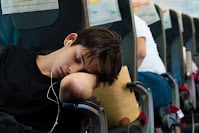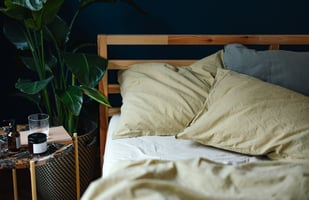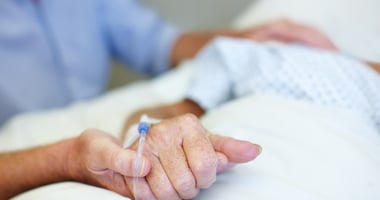Nearly one in four young adults has used cannabis and/or alcohol to fall asleep, according to a...
Poor Sleep Habits Linked to Binge Drinking Among Adolescents

Adolescents who prefer going to sleep later in the evening, are sleepy during the day, and sleep for shorter periods of time are more likely to participate in severe binge drinking the following year, according to a study published Tuesday in Alcoholism.
“Growing longitudinal evidence indicates that late childhood and adolescent sleep characteristics predict alcohol and cannabis use and related problems in later adolescence and young adulthood,” wrote Brant Hasler, Ph.D., of the University of Pittsburgh and colleagues. “These findings extend a growing literature supporting the relevance of sleep/circadian characteristics to risk for alcohol and cannabis use.”
Hasler and colleagues used data from six annual assessments from 801 participants enrolled in the National Consortium on Alcohol and Neurodevelopment in Adolescence (NCANDA) study. Participants, aged 12 to 21 years at baseline, were interviewed to determine past-year alcohol use, cannabis use, and severity of binge drinking. The authors defined binge drinking based on a scale determined by age, ranging from three or more drinks for participants 13 and younger, up to five or more drink for male participants 18 and older, and four or more drinks for female participants 18 and older. Participants were considered to have engaged in heavy binge drinking if they reported consuming double the initial age-based binge levels and extreme binge drinking if they consumed triple the initial levels.
As part of the NCANDA study, the participants were also asked about their sleep habits, including circadian preference (meaning what time participants prefer to wake up and go to bed), past-month sleep quality, daytime sleepiness, and what time participants typically went to bed and woke on both weekdays and weekends.
Adolescents who reported a preference for going to bed later and waking later, greater daytime sleepiness, and shorter sleep duration on both weekdays and weekends were more likely to binge drink the next year, the researchers found. Further, shorter sleep duration on weekends was the predominant predictor of future binge drinking severity when compared with all the sleep measures, with one hour less sleep on weekends resulting in 19% increased risk for severe binging the following year. Preferring a later bedtime and wake time was also associated with a higher risk of cannabis use the next year.
“Sleep is a modifiable behavior in adolescents … and, consequently, adolescent sleep may be a viable target for reducing substance use risk through, for example, policy-level changes delaying school start times,” the authors concluded.
For related information, see the Psychiatric News article “Short Sleep Duration Increases Adolescent Suicide Risk.”
(Image: iStock/Enes Evren)
Just a Few Weeks Left to Submit Abstracts for Mental Health Services Conference
The 2022 Mental Health Services Conference will empower all mental health service providers with practical tools and innovations to shape the future of community collaboration. Held in person in Washington, D.C., at the Capital Hilton Hotel on October 13-14, the conference will provide up to 18 continuing education credits for physicians, psychologists, social workers, and nurses. The deadline for abstracts is Thursday, June 2, at 5 p.m. ET.





